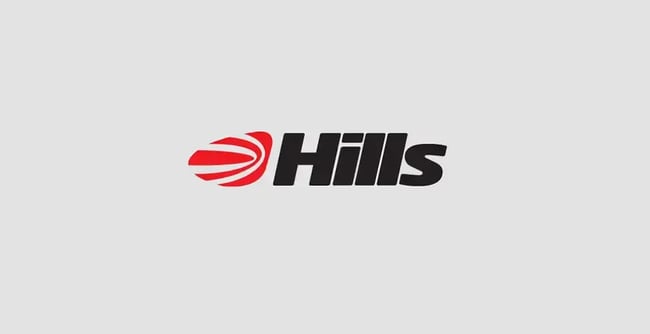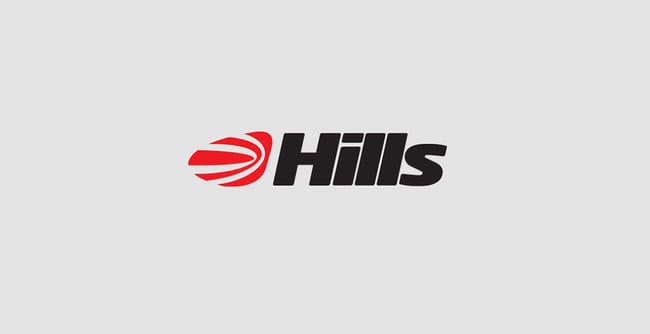
Waste Management Legislation
Keeping the Waste Management Industry regulated
CREATE YOUR ONLINE QUOTE NOW
Switch to Hills Waste Solutions in under 10 minutes
- 97% services reliability
- 4,000 businesses in our community
Waste Management Legislation
It is the responsibility of the waste producers (those whose waste is required to be disposed of) to ensure that legislation is upheld; with all relevant permits obtained, paperwork completed and records kept, with failure to comply potentially resulting in penalties.
Detailed below is a small selection of some of the waste legislation that you and your business should be aware of, what they cover and what you need to do to comply. This is not a comprehensive list. Waste Management regulations are very complex and require knowledge and expertise to ensure compliance. We would recommend you seek advice from a waste consultant to help you dispose of your waste properly.
Classifying Waste
Classifying your waste is the important first step in correctly managing and disposing of your waste. All waste must be identified and classified before it is sent for recycling or disposal and is a requirement for all businesses that generate waste of any kind.
There are several classifications to waste, however first it must be assessed whether it is hazardous or contains persistent organic pollutants (POPs) as these types of waste must never be mixed with non-hazardous waste or another hazardous waste; this is not only illegal and your business could incur fines, it is potentially dangerous to health and the environment.
Types of hazardous and non-hazardous waste have a classification code assigned to them, also referred to as LoW (List of Waste) or EWC (European Waste Catalogue) codes that allow waste managers to know how to correctly handle, dispose of, or recycle each particular type.
There are approximately 650 different codes assigned, in 20 chapters and then further divided into categories. Some of the more common ones are:
- 19 12 01 - Paper and Cardboard
- 20 03 01 - Mixed Municipal Waste Including Mixed Packaging
- 20 01 02 - Glass Waste
- 17 06 05* - Construction Materials Containing Asbestos
An asterisk (*) denotes that this material is considered hazardous waste and should therefore be handled and disposed of carefully and through the appropriate channels.
It's important to note that incorrect use or categorisation of waste is a breach of the waste duty of care regulations, so it's important that the waste disposer correctly identifies the materials in the waste.
For further information on the classification of waste and the codes associated with these, please refer to the Government guidelines.
-
Duty of Care/Waste Transfer Notes
Duty of Care is the legal obligation for anyone (householders and businesses) that produces, carries, processes or disposes of waste to ensure that it is handled appropriately and responsibly. Businesses must also take steps to minimise the impact of the waste that they generate, including recycling, reusing and sustainable practices.
The waste producer or holder is obliged to describe their waste correctly in accordance with WM3.
Waste Transfer Notes (WTNs) are documents required by law as part of Duty of Care regulations, that provide a record of the transfer of waste from one person or organisation to another. The WTN must provide details about the waste being transferred, including the type and quantity of waste, the name and address of the person transferring the waste, the name and address of the person receiving the waste, and a description of the steps that will be taken to manage the waste.
WTNs are an important part of waste management as they provide an accurate description of the waste when it is transferred to another person. Waste Transfer Notes provide a paper trail that tracks the movement of waste and provides evidence that it is being properly treated and disposed of for local council enforcement officers and the Environment Agency.
To learn more about Waste Duty Notes visit the Government WTN guide -
Environmental Protection Act 1990 (EPA)
The Environmental Protection Act 1990 is designed to regulate and manage waste disposal and pollution, in order to protect the environment and public health by minimising the environmental impact of businesses. The waste duty of care, issued under section 34(7) of the Environmental Protection Act provides a framework for waste management with a focus on handling, storage, transportation, and disposal of waste, and measures to prevent pollution and promote sustainable development. The EPA is applicable to all individuals, businesses, and organisations that generate and handle waste of all types; including inert, non-hazardous and hazardous, commercial and industrial waste, and non-compliance can incur penalties and possible imprisonment. By working with Hills Waste, we can help you to ensure that your business upholds The Environmental Protection Act 1990 guidance - learn more about our commitment to sustainability.
-
EU Landfill Directive

The EU Landfill Directive provides strict guidelines for the management of landfill sites, defining the different types of landfill and the waste they can and cannot accept, in order to protect health and the environment, with rigid requirements for landfill areas and objectives to reduce its use in favour of other methods.
This Directive also outlines the requirement for most inert or non-hazardous waste to need pre-treatment. This is to ensure the waste being disposed of is compliant with the waste hierarchy, even if that treatment is simply segregation.
The waste hierarchy is important to consider when making decisions about how to dispose of waste. It prioritises different methods of reducing the volume of waste, with landfill being the least desirable option. All businesses should make a concerted effort to reduce the amount of waste they generate, and when waste is generated, other disposal options such as reuse of materials or recycling should be explored before landfill disposal is considered. In order to ensure that all generated waste is disposed of in an environmentally-friendly manner, businesses should strive to implement a waste management strategy that follows the waste hierarchy and is tailored to their specific needs.
Learn more about the EU Landfill Directive.
-
Landfill Tax Regulations 1996
Landfill tax is a tax applied on the disposal of all waste to landfill and is controlled and collected by HM Revenue & Customs (HMRC) and applies to England and Northern Ireland.
All waste entering landfill is subject to Landfill Tax with very few exemptions, so it encourages businesses to exercise every effort to reduce the amount of waste they produce and adopt suitable non-landfill waste management solutions such as; recycling, re-use and composting.
Landfill tax is generally charged per tonne of waste disposed and is subject to a yearly increase. Some suitable qualifying materials may attract a lower per tonne rate.
Waste attracting the lower rate must conform to the Qualifying Material Order 2011, these materials include.
- Naturally occurring rocks and soils
- Ceramic or concrete materials
- Minerals
- Furnace slags
- Ash
- Low activity inorganic compounds
- Calcium sulphate
When a request is made for a lower rate of landfill tax to be applied, Hills Waste Solutions will conduct pre-acceptance waste checks, details of the waste generation will be required alongside laboratory testing. As your Waste Management partner, Hills Waste Solutions will also conduct sampling and laboratory analysis in accordance with LFT 1 (Landfill Tax Guidelines) to ensure compliance.
Should the material not be compliant with the qualifying material order, the client will be informed, the waste may be returned, or disposed at the facility and standard rate tax applied. If the waste is hazardous the waste can be forwarded to a suitable permitted facility.
To learn more about Landfill Tax and it's obligations , visit gov.uk.
-
Hazardous Waste Regulations 2005
The responsible handling and disposal of hazardous waste, such as batteries, asbestos, and chemicals, is important in order to avoid danger to health and damage to the environment. The Hazardous Waste Regulations 2005; that are enforced by the Environmental Protection Agency, provide a comprehensive set of guidelines to ensure that hazardous waste is handled and disposed of in a safe and responsible manner. These regulations also cover the transportation, storage, treatment, and disposal of hazardous waste, as well as the correct permits and record keeping. All businesses must identify hazardous waste and ensure that it is stored appropriately separately from other types of waste and that it is handled and collected by specialist registered waste carriers. Failure to comply with these regulations may result in prosecution and fines.
Learn more about our hazardous waste management services to ensure that your business adheres to all regulations. -
Packaging Waste Regulations
Packaging Waste Regulations are guidelines that aim to reduce the amount of plastic packaging/filling waste and raw packaging material waste that is sent to landfill and to promote its reuse and recycling. These regulations apply to businesses such as those in the manufacturing and production sector which handle 50 tonnes or more of packaging materials or packaging annually or have a turnover of more than £2 million a year. If you are eligible; as either a producer or generator of packaging waste, by law you must register your compliance to adhere to these regulations - failure to do so will result in penalties.
-
Waste from Electrical and Electronic Equipment (WEEE) 2007
All companies, suppliers and sellers of electrical items such as computers, TVs, microwaves and telephones must adhere to WEEE regulations to ensure proper management of electronic waste, as these products contain components which can be hazardous to health and the environment if not properly handled and disposed of. Electronic waste must be separated from other types of waste and collected and treated by authorised waste carriers, failure to adhere to these regulations can result in legal action and damage to your businesses reputation.
For more information on WEEE laws and regulations, visit gov.uk -
UK Waste Regulation 2015 - (Separate Collections (TEEP)
To improve UK recycling rates, the UK Waste Regulation 2015 - (Separate Collections (TEEP)) promotes correct waste classification and separation to ensure that it is recycled and disposed of in the most appropriate way. It is the responsibility of all individuals and businesses to ensure that recyclable material such as glass, metal, paper, cardboard, and plastic is handled and stored separately to general waste and free from contamination so that it can be collected and treated by specialist waste carriers. It is the legal responsibility of all individuals and businesses to follow the waste hierarchy structure and correctly dispose of waste in the appropriate containers.
Learn more about our waste container range to suit your waste needs.
-
Animal By-Products
Animal by-product handling and disposal are part of the Department for Environment, Food & Rural Affairs and provide guidelines to ensure that animal by-products such as bones, fat, meat and eggs are handled, processed, stored and disposed of correctly to protect health and the environment. Animal by-products are divided into three categories that determine how they are managed; ABP 1 and ABP 2 are considered high-risk and include contaminated carcases, animals from zoos, and livestock. ABP 3 includes low risk waste such as domestic catering waste, bones, fat, meat and eggs. It is the responsibility of individuals and businesses that generate animal by-products of all kinds to categorise, store separately from other waste types, and dispose of correctly to maintain hygiene and to avoid potential fines.
Approximately 1.1m tonnes* of food waste is produced annually by the hospitality and food service industry, and with that Category 3 Animal by-products. By partnering with a waste management company such as Hills Waste Solutions, you can ensure that your food waste is responsibly handled and treated.
To learn more, visit the government guidance for animal by-product disposal.*Resources: https://lordslibrary.parliament.uk/food-waste-in-the-uk/
-
Waste Carriers
It is the legal responsibility of all individuals, businesses and organisations to comply with waste legislation, by partnering with a trusted, experienced, and suitably permitted and licenced waste carrier such as Hills Waste Solutions, you can ensure the complete end-to-end process is managed responsibly and follows all guidance and legalities. This will help you to ensure that your business fulfils it’s Duty of Care. Hills Waste is fully licensed to handle most commercial waste streams.
To learn more about how Hills Waste Solutions can help your business manage waste, contact our expert team today.
Want to know more?
For more information on how this legislation may impact your waste operations or to discuss your waste management with a member of our team, contact us today.
Latest news
View all
Tula Welsh appointed to lead Hills' Sales Team
January 2026Hills Waste Solutions has appointed Tula Welsh to the position of Sales Manager.
Continue reading
Statement on Wiltshire Council HRC closures
December 2025The Hills Group is disappointed with Wiltshire Council’s decision to close the Household Recycling C...
Continue reading
Wiltshire Council contract update
December 2025Following Wiltshire Council’s review of waste and contract services, Hills Waste Solutions is please...
Continue reading